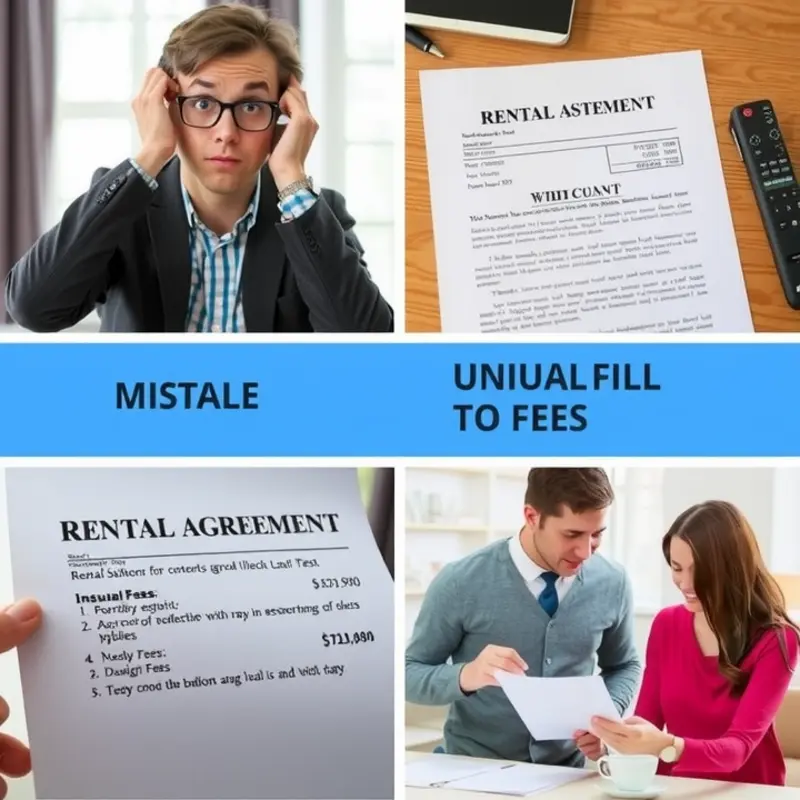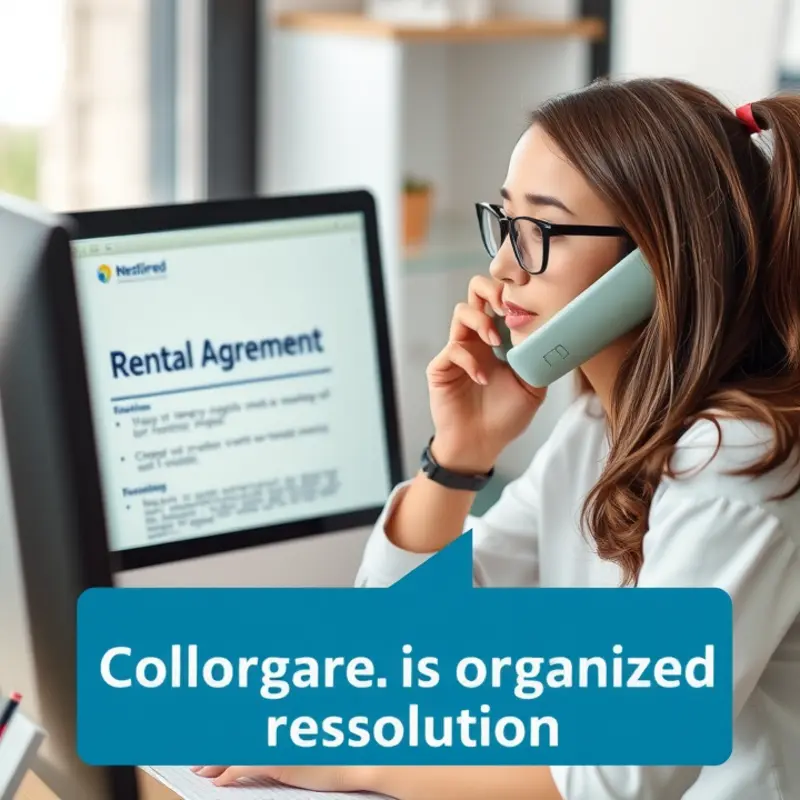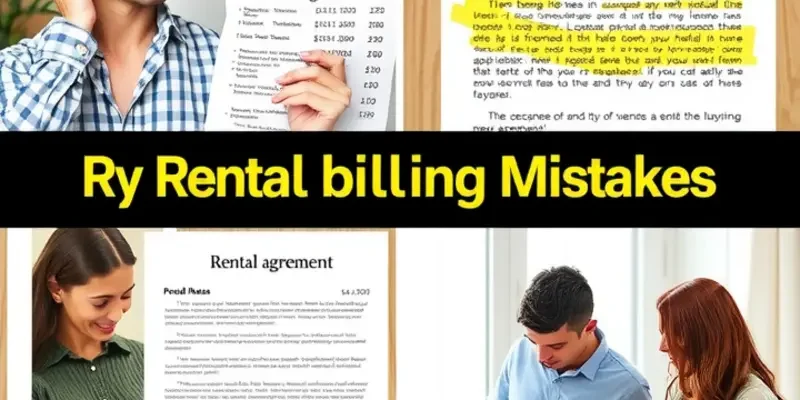Rental billing errors can throw a wrench in your budgeting and financial planning, causing unnecessary stress for young professionals, students, and families alike. From incorrect charges to security deposit mishaps, these issues can feel overwhelming, especially if you’re just starting your renting journey. Understanding how to identify these errors is crucial for maintaining financial clarity and protecting your rights as a tenant. With the right approach, you can navigate through the complexities of rental agreements and billing errors with confidence. This guide emphasizes practical steps to resolve issues efficiently, ensuring that your renting experience is smooth and stress-free. In a world where every dollar counts and clear communication is key, learning how to handle these challenges not only equips you with valuable skills but also empowers you to create a stable home environment. Let’s get started on the path toward financial clarity and understanding as a renter.
Identifying Common Rental Billing Errors

Navigating rental billing can be a daunting task, especially for first-time renters and young professionals. Knowing which typical errors occur can spare you substantial stress and financial setbacks.
Incorrect Rent Charges
One of the most common billing errors is being charged the wrong amount on your rent. This can happen due to manual entry mistakes or system errors. To spot this, always compare your lease agreement to your monthly statements. Even a small discrepancy can add up over time.
Unseen Fees
Renters often encounter “hidden” fees that aren’t clearly communicated. These can include charges for amenities, parking, or maintenance that weren’t explicitly listed. To prevent this, scrutinize your lease before signing. If your statement includes unfamiliar charges, reach out to your landlord or management company immediately to resolve the matter.
Deposit Discrepancies
Security deposits are another area rife with potential errors. Landlords may deduct inexplicable amounts from your deposit upon move-out, citing vague damages or cleaning fees. To protect yourself, document the condition of your apartment when moving in and out. Photographic evidence can support your case if discrepancies arise. Learn more about how to handle such situations efficiently.
Utility Billing Errors
Incorrect utility charges can substantially affect your budget. Whether utilities are included in rent or billed separately, keep track of your consumption. Verify with past bills or ask for a breakdown of charges if anomalies appear. Paying for the previous tenant’s usage is an unnecessary burden.
Late Fees and Penalties
Occasionally, renters face unjustified late fees or penalties. Billing systems can glitch, recording timely payments as late. Keep all payment receipts and related correspondence in a dedicated folder. If penalized incorrectly, proof of payment can be your best ally.
Recognizing these billing errors early is crucial. Beyond financial implications, errors can impact your credit score if unpaid bills go to collections. Thoroughly reviewing your rental agreements and monthly statements prepares you to take swift corrective action when discrepancies arise.
Steps to Resolve Billing Discrepancies

Navigating rental billing errors can be stressful, especially when juggling new responsibilities as a first-time renter or young professional. Fortunately, understanding the proper steps can transform a potentially overwhelming experience into a manageable process. Here’s a guide to help you tackle billing discrepancies efficiently.
First, gather all pertinent documentation. Start by collecting your rental agreement, receipts of payments made, emails, and any other correspondence with your landlord or property manager. This will serve as a solid foundation to understand the nature of the discrepancy. Clearly identified documents can bolster your case and reduce misunderstandings.
Next, scrutinize the documents and identify where the mistake might have occurred. Compare your records with any statements provided by the landlord. This could highlight where and when the anomaly arose, whether it’s an incorrect charge or a missed payment. Precision during this step is crucial, as assumptions can lead to further complications.
Once your investigative groundwork is laid, approach your landlord or property manager promptly. It’s best to do this through written communication, as it creates a paper trail should the issue persist. When drafting your email, remain polite yet assertive. Start by explaining the issue based on facts, referencing specific dates or amounts in question. This approach ensures clarity and reduces the likelihood of defensive reactions.
In your message, propose a potential resolution. For instance, if there’s an overcharge, suggest adjusting the next billing statement. Offering a constructive solution not only demonstrates your willingness to resolve the matter amicably but also positions you as a cooperative tenant, which could facilitate a quicker resolution.
Should initial discussions not yield results, negotiation comes into play. Highlight any discrepancies in writing and request a meeting with your landlord or property manager. Focus on maintaining a calm and respectful demeanor throughout negotiations. Active listening is also key—understand their perspective to better argue your side.
If negotiation stalls, remind the other party of your lease terms. Landlords are bound by these agreements just as you are, and a gentle reminder can often spur action. You can explore more on handling such situations in this guide.
Finally, seek external assistance if internal resolutions fail. Contact organizations that advocate for tenant rights or consult a lawyer specializing in rental leases. This should be a last resort, as these avenues can be time-consuming and costly. However, they may be necessary to protect your financial interests and ensure a fair outcome.
By following these steps, you not only address the immediate billing issue but also strengthen your understanding of tenant rights and responsibilities, equipping you for any future hurdles in your renting journey.
Final words
Navigating rental billing errors may seem daunting, but understanding the common pitfalls and knowing how to address them can empower you as a tenant. Whether you are a young professional starting your rental journey or a family finding a new home, the steps outlined here equip you to handle disputes confidently. Keep in mind that communication with your landlord and thorough documentation are your best allies in resolving issues. By taking charge of your rental experience, you not only ensure clarity in your finances but also contribute to a positive relationship with your landlord. Remember, knowing your rights and responsibilities as a tenant leads to a smoother renting experience.









